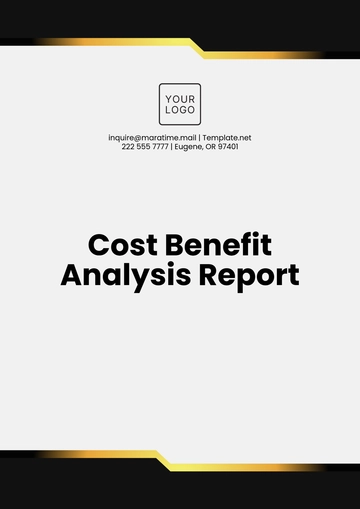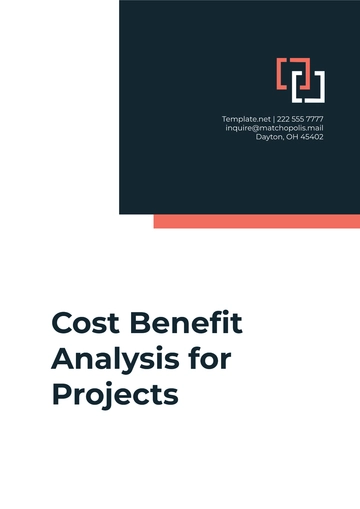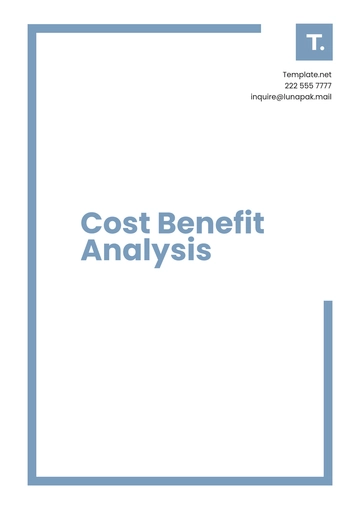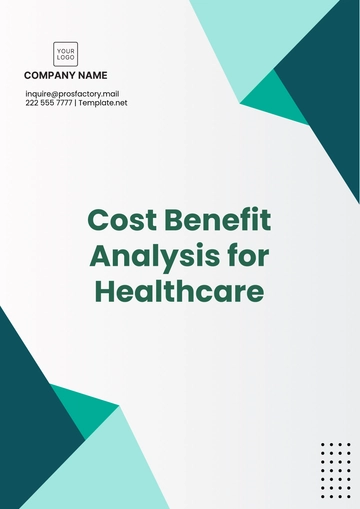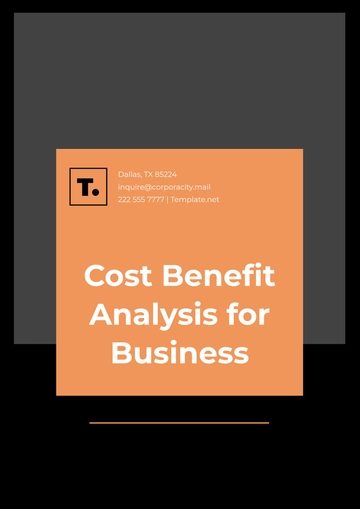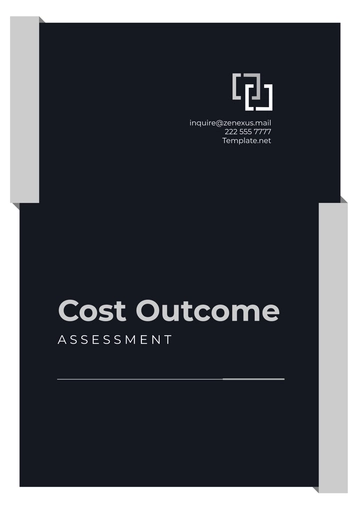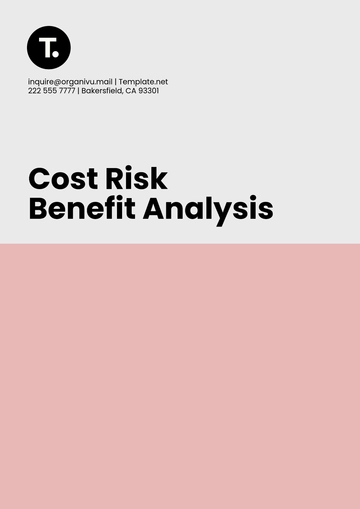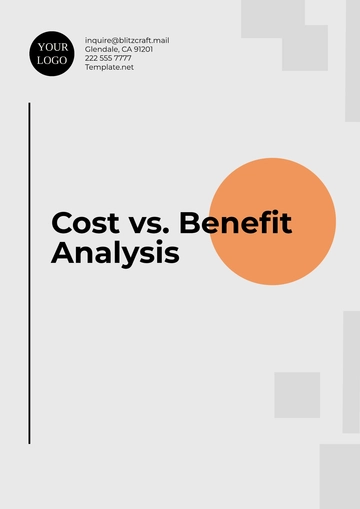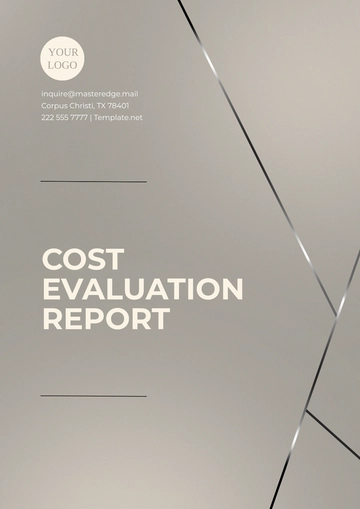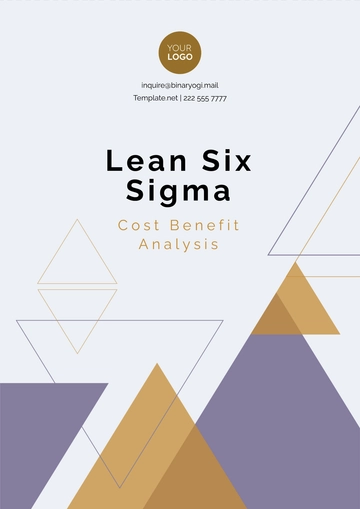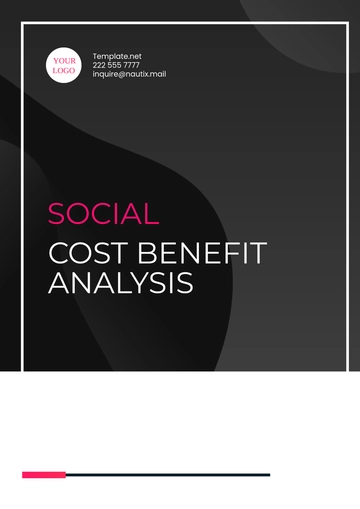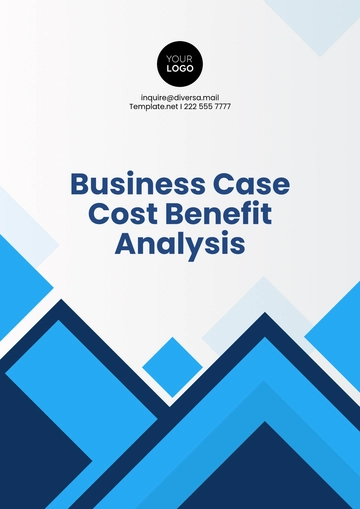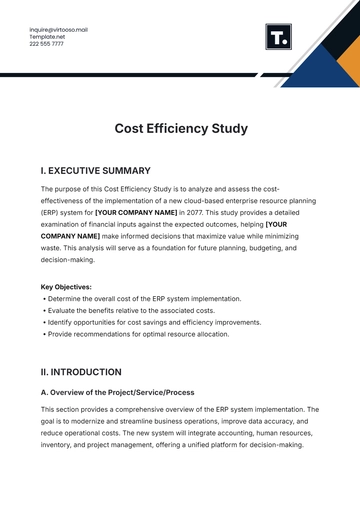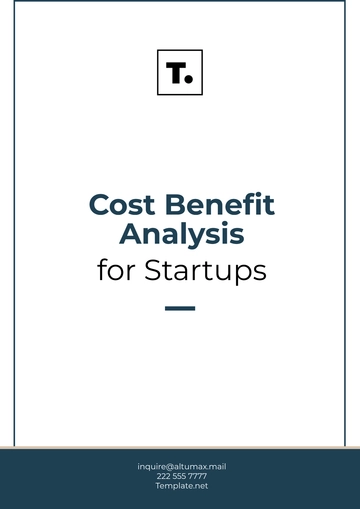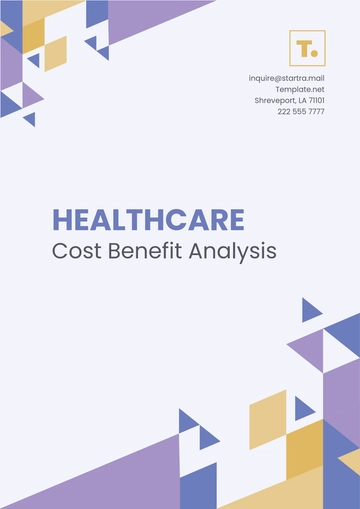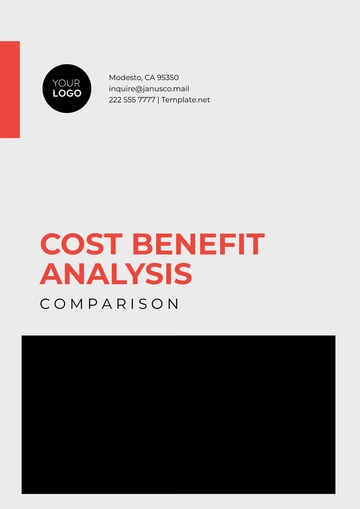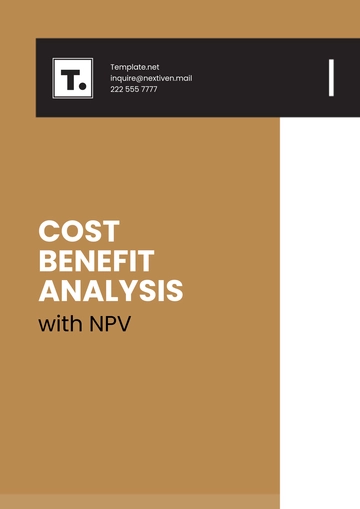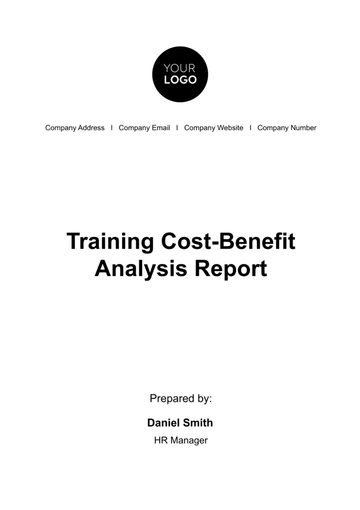Free Financial Analysis Report
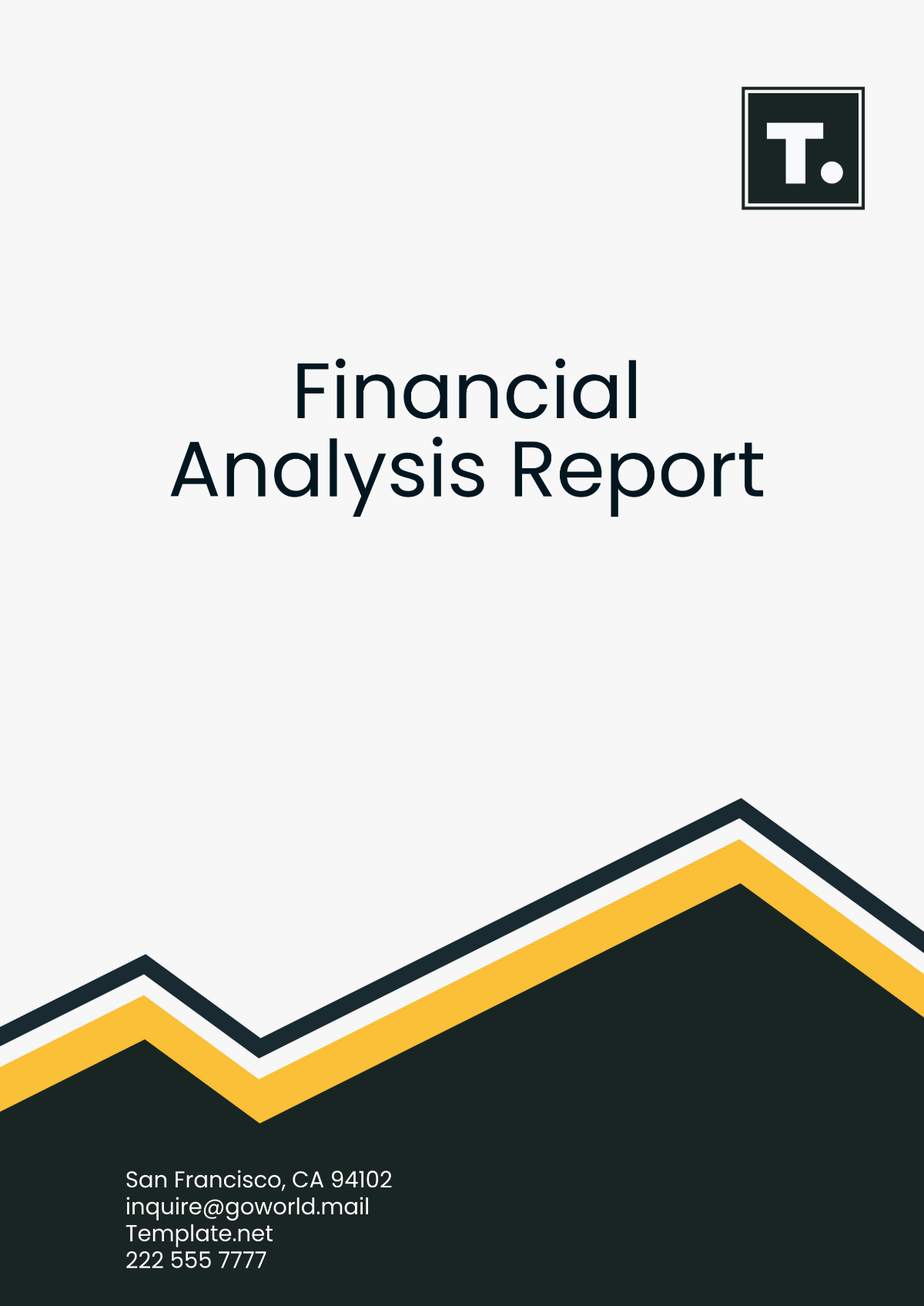
Prepared by: [Your Name]
Date: [Date]
I. Executive Summary
This Financial Analysis Report aims to evaluate the potential investments for profitability and risk. This comprehensive analysis will provide insights into the financial health and performance of the target investment, assessing its ability to generate returns and manage risks effectively. The report is intended for [YOUR COMPANY NAME] to support informed decision-making in investment strategies.
II. Financial Statements Analysis
A. Income Statement Analysis
The income statement provides an overview of the company's revenues, expenses, and net income over a specified period. Key metrics to be analyzed include:
Metric | 2053 | 2052 | 2051 | Trend |
|---|---|---|---|---|
Total Revenue | $10,000,000 | $9,500,000 | $9,000,000 | Increasing |
Cost of Goods Sold (COGS) | $4,000,000 | $3,800,000 | $3,600,000 | Increasing |
Gross Profit | $6,000,000 | $5,700,000 | $5,400,000 | Increasing |
Operating Expenses | $2,500,000 | $2,300,000 | $2,200,000 | Increasing |
Net Income | $2,200,000 | $2,000,000 | $1,800,000 | Increasing |
B. Balance Sheet Analysis
The balance sheet provides a snapshot of the company’s financial position, detailing assets, liabilities, and equity. Key metrics to be analyzed include:
Metric | 2053 | 2052 | 2051 | Trend |
|---|---|---|---|---|
Total Assets | $15,000,000 | $14,000,000 | $13,000,000 | Increasing |
Total Liabilities | $5,000,000 | $4,800,000 | $4,600,000 | Increasing |
Shareholders' Equity | $10,000,000 | $9,200,000 | $8,400,000 | Increasing |
C. Cash Flow Statement Analysis
The cash flow statement provides insights into the company’s cash inflows and outflows from operating, investing, and financing activities. Key metrics to be analyzed include:
Metric | 2053 | 2052 | 2051 | Trend |
|---|---|---|---|---|
Operating Cash Flow | $3,000,000 | $2,800,000 | $2,600,000 | Increasing |
Investing Cash Flow | -$1,500,000 | -$1,200,000 | -$1,000,000 | Increasing Outflow |
Financing Cash Flow | $1,000,000 | $900,000 | $800,000 | Increasing |
III. Ratio Analysis
Ratio analysis helps in understanding the financial health and performance efficiency of the company. Key ratios to be analyzed include:
A. Profitability Ratios
Ratio | 2053 | 2052 | 2051 | Trend |
|---|---|---|---|---|
Gross Profit Margin | 60% | 60% | 60% | Stable |
Net Profit Margin | 22% | 21% | 20% | Increasing |
Return on Equity (ROE) | 22% | 22% | 21% | Stable |
B. Liquidity Ratios
Ratio | 2053 | 2052 | 2051 | Trend |
|---|---|---|---|---|
Current Ratio | 2.5 | 2.4 | 2.3 | Increasing |
Quick Ratio | 1.8 | 1.7 | 1.6 | Increasing |
C. Solvency Ratios
Ratio | 2053 | 2052 | 2051 | Trend |
|---|---|---|---|---|
Debt to Equity Ratio | 0.5 | 0.52 | 0.55 | Decreasing |
Interest Coverage Ratio | 10 | 9 | 8 | Increasing |
IV. SWOT Analysis
A. Strengths
Strong revenue growth
High profitability margins
Robust cash flow from operations
B. Weaknesses
Increasing operating expenses
High dependency on a few key customers
C. Opportunities
Expansion into new markets
Development of new product lines
D. Threats
Intense market competition
Economic downturn impacts
V. Recommendations
Based on the analysis, the following recommendations are provided to [YOUR COMPANY NAME]:
Diversify Customer Base: Reducing dependency on a few key customers can mitigate risks.
Control Operating Expenses: Implement cost-control measures to maintain profitability margins.
Expand Market Reach: Explore new markets to drive revenue growth.
Monitor Economic Indicators: Stay informed on economic trends to anticipate potential impacts.
This Financial Analysis Report provides a thorough evaluation of potential investments, ensuring [YOUR COMPANY NAME] makes informed decisions to optimize profitability and manage risks effectively.
- 100% Customizable, free editor
- Access 1 Million+ Templates, photo’s & graphics
- Download or share as a template
- Click and replace photos, graphics, text, backgrounds
- Resize, crop, AI write & more
- Access advanced editor
Make informed financial decisions with our Financial Analysis Report Template, which is found exclusively on Template.net. This template helps you analyze trends, ratios, and forecasts. It's customizable and editable in our Ai Editor Tool, enabling you to adapt it to your organization's financial analysis requirements. Download it now, for free!

